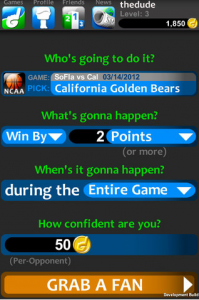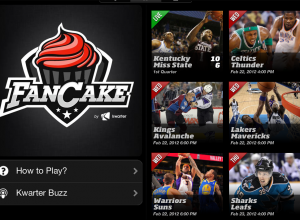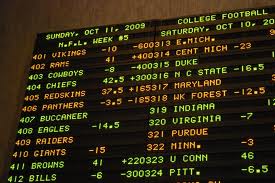Set to launch (hopefully) with the San Francisco Giants’ home opener later this week, Grabfan is an app developed by two lifelong friends, CEO Steve Smith and COO Cassidy Lavin, who loved fantasy sports leagues but hated how they worked — or didn’t work.
“Fantasy sports have been around a long time, but they’re broken,” said Lavin in a recent phone interview. “If you’re out of it by the ninth week of a season you don’t care about your team any more. What we want is something that lets you feel like how you feel on that first Sunday, the excitement of the first week of the season — we want you to feel like that every day.”
Enter Grabfan, an app that aims to let fans make daily predictions about how their teams will fare, and reward them for correct calls. According to the Grabfan site, app users can create their own predictions on parts of a game small or large (like the final score, or whether a certain player will get a hit) and then “challenge” a friend or anyone who thinks they might want to verbally contest the choice. You can then also set a “confidence” level which corresponds to “Grabbucks,” the virutal currency awarded for correct choices.
According to Grabfan the Grabbucks can be redeemed for prizes like merchandise (think watch bands and sunglasses) or maybe free drinks at nearby bars. The app is available now for iPhone and iPad devices, with an Android version in the works.
While much of the Grabfan enterprise will be created on the fly as the season unfolds (the duo hope to add a lot more bells and whistles, like integrated chat, Vegas betting lines and news for that day’s games), the founding duo will be extremely active online and on the roads surrounding the home of their hometown San Francisco Giants, AT&T Park. Driving around in the yet-to-be-seen “Grabfan vehicle,” a chopped-roof VW bus with orange flames, the Grabfan founders will will conduct random giveaway contests (for orange sunglasses) for folks who do some unspecified social-media trick like text #Grabfan to promote the app. There will also be Twitter giveaways where the company will award its lower-level box seats to each Giants home game. It’s all kind of seat of the pants at the moment but there is no mistaking the Grabfan enthusiasm.
“We’re going to be heavily focused on the Giants at first,” said Smith. “Everyone in the city likes the Giants, and we’re going to drive around so if you see the bus tweet a picture of it and you might win tickets.”
Smith and Lavin also hope to add a Foursquare-like checkin functionality to the app, both so that fans can find others close by to bet with (ahem, to challenge with predictions) and to have localized sponsors like bars who might offer free drinks or meal discounts for Grabbucks. At some point in the distant future there may be a way to involve real money online — in fact some legislators in California just submitted a bill to move online betting into the real world — but that day is not here yet for apps like Grabfan. The key right now, as the founders well understand, is to keep the app’s virtual currency completely virtual and random in its worth, in order to keep the operation in the legal clear zone.
Otherwise it might look too much like betting. And that would be illegal. For now, anyway.
“Don’t call them bets!” Lavin said.
OK, we won’t. But others will. You can bet on that.












